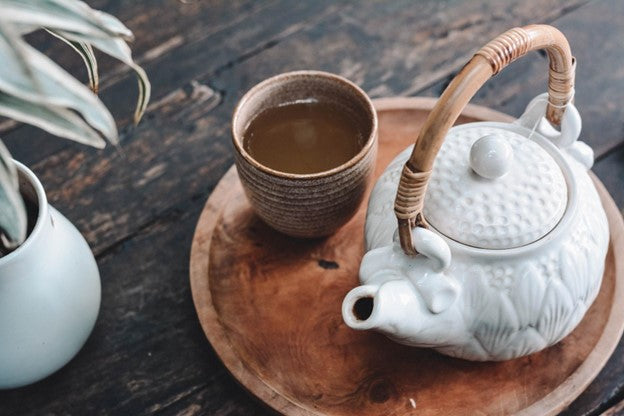If you thought that only coffee contains caffeine, you're totally wrong! The tea you consume also has caffeine in varying amounts - so if you are someone who requires a burst of energy in the morning but doesn't like the taste of coffee, this might come as good news.
But, if you are someone who is trying to lower your caffeine intake, you don't necessarily need to avoid drinking tea altogether. Instead, you can opt for loose leaf teas with lesser caffeine content to enjoy the best of both worlds. But for that, you need first to be aware of how much caffeine your cup of tea contains. And in this article, we intend to help you with the same. Read on for more!

What Is Caffeine And Why Does It Matter?
Caffeine is a natural stimulant that is found in several plants, including tea and coffee. Its consumption helps people combat tiredness and perform better. But, while moderate consumption of caffeine can be beneficial, intaking too much can lead to adverse effects like anxiety and insomnia.
There are several varieties of tea, and not all contain the same quantity of caffeine. But, the type of tea you are brewing isn't the only factor that determines the amount of caffeine in your cup.
Here are some other ways in which you can control the amount of caffeine in your tea:
- Use whole leaf tea instead of tea bags - the broken tea leaves in the latter increase the caffeine levels in your tea
- Don't brew the tea for too long - the more the leaves sit in the water, the greater the amount of caffeine
- Keep an eye on the number of tea leaves you are adding - this is especially true when you are using loose leaf tea

How Much Caffeine Does Your Tea Contain?
If you are a tea enthusiast who loves drinking a variety of different teas, you might want to know about their risks and benefits too. Here we have discussed some of the most popular types of teas, their health benefits, and of course, their caffeine content:
Black Tea
The bold flavor of black tea makes it one of the most popular teas consumed around the world. This tea is loaded with lots of antioxidants and other beneficial compounds that help reduce the risk of several chronic diseases. But, it also contains the highest quantity of caffeine among all varieties of teas. A standard cup of black tea (236 ml) contains around 42 mg of caffeine.
Green Tea
Green tea is highly popular among the health-conscious population due to the multiple benefits it offers for weight loss and overall health. The caffeine content of green tea is quite low, too - a standard cup contains only around 18 mg.
Oolong Tea
Oolong tea is a partially oxidized tea especially popular in China. Daily consumption of this tea can help control cholesterol levels, boost bone health, and prevent obesity. It has moderate caffeine levels - a standard cup has around 37 mg of the stimulant.
White Tea
White tea is a minimally processed tea variant with a mild flavor and several health benefits. It's low in caffeine content too. A standard cup of this tea would contain around 28 mg of caffeine.
Are There Any Caffeine-Free Teas?
If you are sensitive to caffeine and can't tolerate even low doses, you can opt for caffeine-free herbal teas. Below are a few healthy options you can choose from.
Chamomile Tea
Tea brewed from chamomile has numerous health benefits. It can help fight inflammation, insomnia, menstrual disorders, rheumatic pain, and so on.
Hibiscus Tea
Hibiscus tea is a refreshing beverage made from dried calyxes of the Hibiscus flower. Regular consumption can have a beneficial effect on your blood pressure, insulin resistance, cholesterol, etc.
Peppermint Tea
Peppermint tea is a highly popular drink that has antiviral, antioxidant, anti-microbial, and anti-allergenic properties.
Ginger Tea
Regular consumption of ginger tea can help you fight symptoms of common cold, improve digestive function, and relieve nausea.
Rooibos Tea
Rooibos tea has a sweet flavor along with medicinal properties. It is rich in antioxidants and helps maintain bone, liver, brain, heart, and lung health.
Summing Up
We hope that with this article, we could clear your doubts about the caffeine content of your tea. So, no matter whether you prefer tea bags or loose leaf tea, you will now be able to have more control over your daily caffeine consumption.

